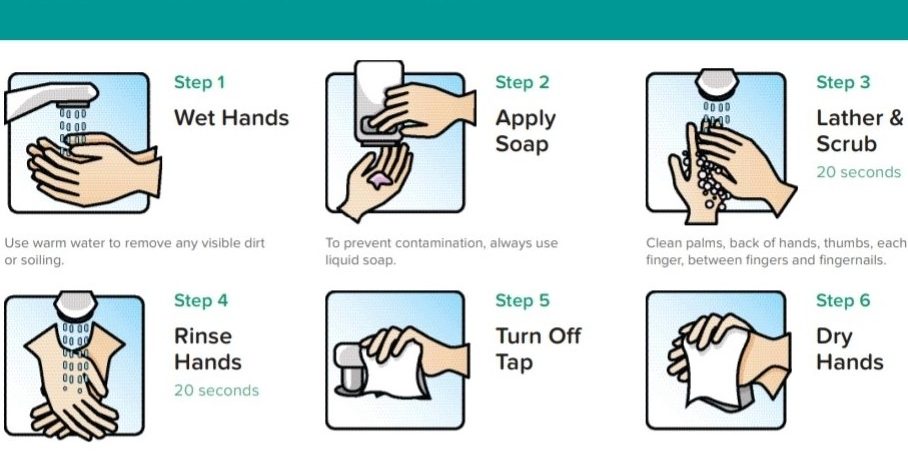Content:
• Wellbeing
• Communicate
• Absence Management
• What to do if an employee refuses to come to work because of COVID-19
Tips for employers
With the number of cases of COVID-19 (coronavirus) on the increase, including here in the UK, here are some
tips to help employers manage the risks of the virus in the workplace.
Wellbeing
- Encourage good hygiene. Explain the ‘catch it, bin it, kill it’ process and advise workers to wash their hands with preferably hot, soapy water whilst they recite the words to ‘Happy Birthday’, twice.
- Where possible, supply tissues and hand sanitisers to encourage frequent use and face masks for any worker who starts to show symptoms of a cold or flu.
- If you have the capacity, consider designating an ‘isolation room’ where an employee who feels ill can sit away from the rest of the workers and privately call ‘111’.
- You may need to alter your cleaning process to ensure a good daily adequate clean of your premises.
Communicate
Keep everyone updated on actions you have taken or plan to take to reduce the risks. Don’t forget
to consult staff – they could have ideas you never thought of.
- Update workers’ contact and emergency details? Ensure you have up to date information.
- Find out if any of your employees have any travel plans. Discuss it with them. Is it a work-related trip or personal? Is it essential travel? If it is, seek advice and discuss the arrangements for their return.
- Consider meetings over Skype or Zoom etc to limit the travel your workers are required to do.
Absence management
- Ensure HR/managers handle workers’ concerns and absences appropriately, consistently and
knowledgeably. Check they are all well versed on the company’s sickness absence notification
procedures and the sick pay scheme, is it company sick pay or SSP only? - Paying SSP only could increase the risk of workers going to work and spreading the virus to colleagues. To the contrary, a company sick pay scheme could be open to abuse with workers claiming symptoms they may not have. SSP however is only payable in certain circumstances – read our update here.
- It may be good practice to consider a discretionary sick pay scheme during this period, for staff that may be in quarantine or have self-isolated. What proof would you require? What level of contact would you expect? Remember to check on their wellbeing from time to time and keep them appraised of important work-related information.
What to do if an employee refuses to come to work because of COVID-19
If workers are unable/unwilling to come to work or you need to close for a period, your business continuity
plan should kick in. If you don’t have one, consider the following:
- Listen to employees’ concerns and discuss possible flexible working arrangements such as homeworking.
Remember – it may not be concern for their own health that is driving their anxiety. They could be a
carer or have family at home with challenging health conditions who are at greater risk from the virus. - Could your staff work from home? Do you have a homeworking policy that sets out the expectations and
rules? Do your workers have equipment that can securely access your IT systems? How is connectivity
where they live? How will you measure output? What about supervision? Would the employee need
insurance or the business need to update its insurance policies? Would you need client consent? These
are just a few of the considerations for a successful homeworking strategy. - What if the job cannot be performed at home? Do you have a ‘lay-off’ clause in your contract? No?
Should you? Do you operate a TOIL system (time off in lieu)? If so, consider allowing workers to use TOIL
accrued and giving them longer to make up any time lost through absence. No TOIL system, it’s worth
considering! - Alternatively, consider permitting workers to use their annual leave for any time off they need caused by
the virus. Under the Working Time Regulations, employers can request workers take annual leave on
giving the requisite notice. That could help smaller businesses manage the costs of any closure – some
paid by the employer and some coming out of the workers leave entitlement. - No ‘lay off’ clause, TOIL or enough time to request annual leave before a closure – it is likely you will need
to pay your employees their normal rate if you close or ask them not to come to work.
Remember, it is essential to keep abreast of the news. Follow the advice and guidance issued by the
government and Public Health England which is liable to change. The government publishes daily updates at
2pm with the latest stats and advice.
These are just some of the considerations. Please call us if you need advice tailored to your situation.




